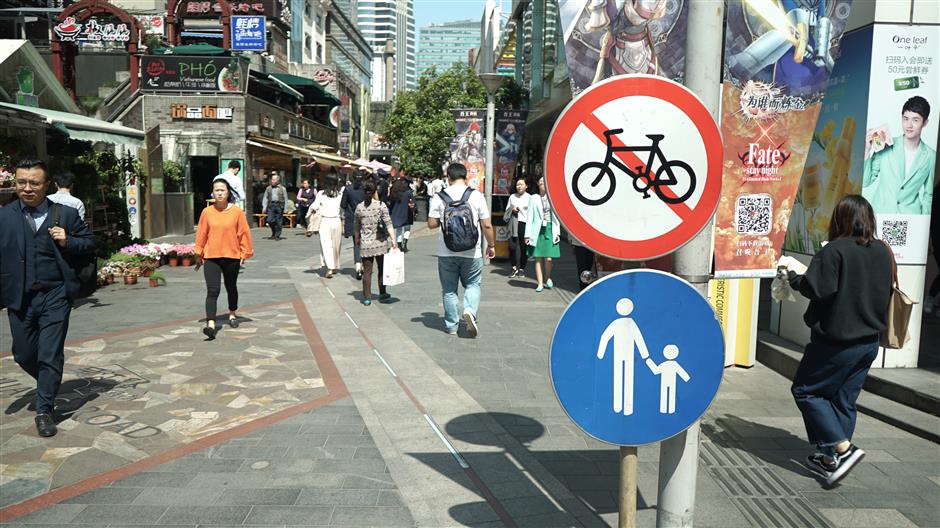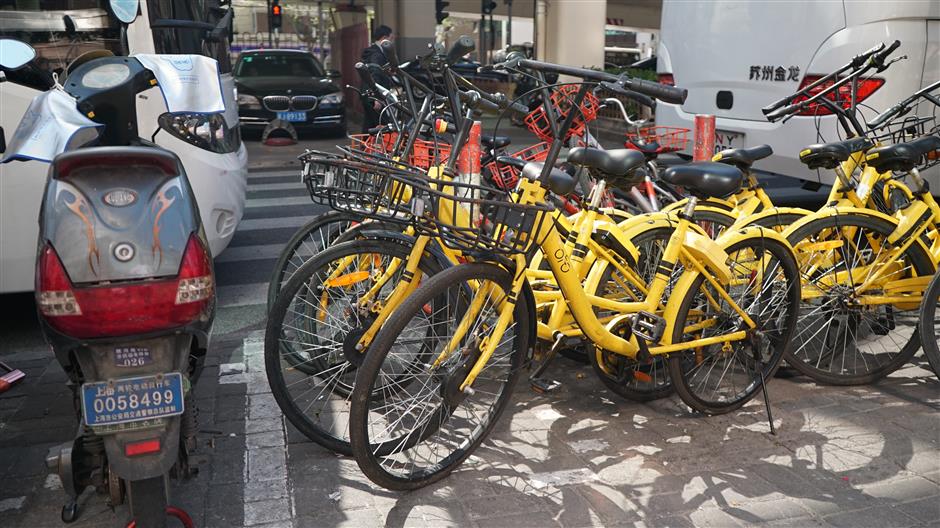Is it time to make Shanghai more pedestrian-friendly?

Wujiang Road is an example of well-designed pedestrian space.
I’ve written a few columns before about my traffic frustrations in Shanghai, often placing much of the blame on pedestrians. I might have been wrong.
I read a really interesting piece in Shanghai Daily last week about the city’s urban planning and how more and more designers are getting involved to help make Shanghai a more pedestrian-friendly place.
That’s when it dawned on me.
I realized that my anger toward pedestrians who walk down the middle of streets or in bike lanes might just stem from something much greater: poor urban planning.
In the Shanghai Daily story, some architects and designers pointed out that Shanghai has long catered mainly to the needs of vehicles in its urban planning, to the detriment of pedestrians.
As so many do, one person — Wu Jiang, an architect and the vice president of Tongji University — brought up Paris because of its “iconic” pedestrian-friendly design.
I haven’t been to Paris, but I think it would be fair to say that Shanghai’s sidewalks are, to put it lightly, forcing people off them.
While riding my scooter to work one morning — and in light of the article — I made an effort to look around areas with a lot of pedestrians walking on roads so that I could better understand why. That’s when it hit me.

A newsstand on the sidewalk forces pedestrians to walk in the street on Fengyang Road.
In many areas it is literally impossible to walk on the sidewalk, and in others there are just short stretches with walkable areas, constantly obstructed with obstacles every few meters. Pedestrians would literally need to step up onto the sidewalk and then back down onto the road a dozen times just to walk the length of one block.
That’s why they just choose, instead, to remain on the road.
Because of the frequency of sidewalk obstacles and bad design — there are many places where trees hang low over sidewalks or where sidewalks are disintegrated or where bike parking spots are placed right across — people tend to prefer to walk on the streets, which are often brighter, more open and in better shape, even if they’re in an area with good pedestrian access. It’s almost become a habit, born out of necessity.
To be fair on the city’s urban planners, some sidewalks are hazardous due to the attitudes of citizens, with ropes and bikes and pipes and clothes hanging and strewn all around them. For example, if the operation of your business requires your utilization of public sidewalks, then you probably need a better business plan.
That’s another issue that could likely be fixed, to some degree, with better design and use of space, though.
And that looks set to happen, at least in some areas, after the Shanghai government invited global designers to submit design ideas for selected walkways in the city. That’s a step in the right direction — mind the pun.
There are other areas where the government has moved to make Shanghai more of a pedestrian-friendly place, for example, the creation of 45 kilometers of sidewalks along the Huangpu River.
That’s a great start, and hopefully one that signals officials are on the right path — another pun — to making this place easier and safer to get around, no matter what your mode of transport happens to be.

Shared bikes block a pedestrian crossing on Chengdu Road N.















